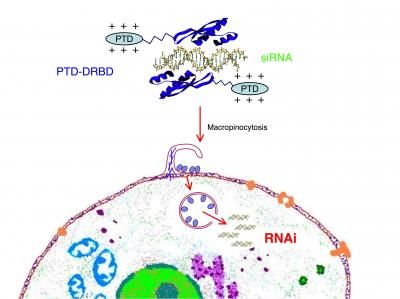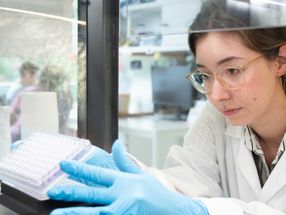Participants in the Gene Therapy Market Discover New Ways to Improve Clinical Efficiency and Generate Revenue
Advertisement
The gene therapy market has had limited success with products during the clinical development process. Due to toxicological complications and poor therapy efficacy, healthcare authorities have suspended several gene therapy trials worldwide.
However, research involving novel designs for vectors, methods of introducing 'naked' deoxyribonucleic acid (DNA), and the use of electroporation to improve DNA uptake into cells have been successful in pre-clinical studies. These new-age technologies are now entering the clinical development stage and approaching the market.
New analysis from Frost & Sullivan (www.healthcare.frost.com), World Gene Therapy Markets, reveals that revenue in this industry is expected to total USD 150.0 million in 2005 and could reach USD 5,743.6 million in 2011.
An increasingly popular method of improving clinical efficiency is to combine gene therapy trials with conventional therapeutics. These combination trials sometimes involve collaborations outside the gene therapy market with companies having established products or expertise in healthcare.
"A second strategy - particularly for companies with fewer products in development - is to work out a suitable exit strategy, should a gene therapy product fail during clinical development," explains Frost & Sullivan Industry Analyst Phil Webster. "This involves the objective assessment of a project, which can either be terminated or have its components recycled into a new project."
The gene therapy market has been on a rollercoaster ride with devastating clinical failures balanced by incredible breakthroughs for the treatment of severe diseases. The launch of Gendicine in China, the only gene therapy product available in the market, signifies a huge boost for gene therapy.
Due to safety concerns, poorly regulated trials, and high levels of clinical attrition, regulatory agencies have stringent authorization laws about gene therapy. Specific ethics commissions, regulatory divisions, and governmental panels all over the world inspect and monitor trials by gene therapy companies.
Lack of cellular target specificity is largely responsible for the toxicity issues in gene therapy, as viral vectors, the most commonly used gene delivery system, may infect even healthy cells while transporting genes to the body. There is the danger of the new gene being inserted in the wrong location in the DNA that can possibly cause cancer or other mutations. Even over-expression of the introduced gene sequences can cause an unfavourable immune reaction.
"Trends in clinical development have shown that there is significant focus on terminal diseases such as monogenic and oncology disorders," notes Mr Webster. "There is also an increasing trend in non-terminal cardiovascular disorders, wherein existing products are available to significantly prolong the life of a patient but do not necessarily offer a cure."
The historically associated risks of gene therapy are now lessening, predominantly through scientific advances in gene delivery by industry participants. Regulatory restrictions will diminish if the clinical success rate improves and more products are submitted for approval.
If you are interested in a virtual brochure, which provides manufacturers, end users, and other industry participants with an overview of the latest analysis of the World Gene Therapy Markets, please use the button 'Contact / Info'.
Other news from the department business & finance
Most read news
More news from our other portals
See the theme worlds for related content
Topic world Gene therapy
Genetic diseases once considered untreatable are now at the center of innovative therapeutic approaches. Research and development of gene therapies in biotech and pharma aim to directly correct or replace defective or missing genes to combat disease at the molecular level. This revolutionary approach promises not only to treat symptoms, but to eliminate the cause of the disease itself.

Topic world Gene therapy
Genetic diseases once considered untreatable are now at the center of innovative therapeutic approaches. Research and development of gene therapies in biotech and pharma aim to directly correct or replace defective or missing genes to combat disease at the molecular level. This revolutionary approach promises not only to treat symptoms, but to eliminate the cause of the disease itself.

























































